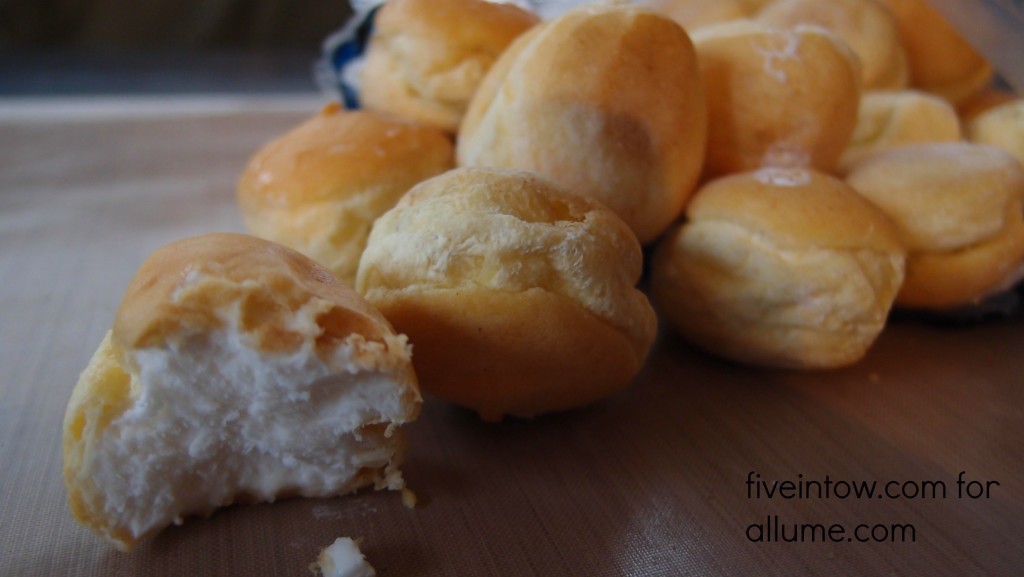My college professor spread out our creative writing papers before her like a feast. The sight of 12-point font made her eyes sparkle like Thanksgiving china. When she took a paper up in her hands, she read it with the expectation that something in it was going to be worth tasting.
Miss Williams loved words. She delighted in the way you could mix them up and create something so profound, it lingered on your tongue for days. She read our own words back to us, slowly savoring the sentences in her mouth and searching for the tasty bits of well-turned phrases and clever dialogue that clung to our unpracticed writing like bits of bacon.
“Oh, Lawd! Oh, sweet Jesus,” Miss Williams said when the words tasted so good, it was like chocolate. “Girl…hmmm…I gotta read that again.” And she would, double-dipping without an ounce of shame.
Sometimes, one of us nailed it. When that happened, well, we may as well have served her warm cherry pie with vanilla ice cream dripping off the sides because she was going to eat every crumb, and lick the plate besides.
“Bless me,” she said when everything was cleared away and grades were scribbled at the tops of pages and she was wiping her eyes because she was so full, it squeezed the tears right out of her.
If you’ve ever made anyone cry over the stuff you put down between one-inch margins, you know it feels like being the person who brings homemade Butterscotch Blondies to the church potluck, only better. It’s like being the caramel sauce.
I thought I was the caramel sauce, too, until I found my old writing folder from Miss Williams’s class. I was horrified to read through my final class project and find a typo right there on page two. I wanted to call her up and yell, “You gave me an A+ when I had a typo on page two?!”
But I knew what she would say. She would say that it was Mrs. Johnson’s fault I had a typo on page two because Mrs. Johnson taught grammar, not she.
Mrs. Williams’s singular job was to teach us how to cook up a good story.
“The hardest thing about being a writer is not remembering where to put the commas!” she’d say in class, suffering a plastic desk to carry the weight of her bosom as she leaned into her tirade. “The hardest part about being a writer is writing. You have got to get over the fear of putting words on paper imperfectly. Perfect writing is just imperfect writing that has had practice.”
It’s too bad because I always liked perfection more than I liked practice.
“Nonsense,” Miss Williams said whenever I hesitated to show her my half-cooked words. “We’re just tasting as we go, that’s all. It’s the only way to make sure it turns out right.”
It was agony. I auto-corrected in my mind as the words came off my lips, but Miss Williams wasn’t listening for dangling prepositions. She was savoring the words and anticipating the way it was going to come together in the end as if she could taste it, even when there was nothing in the pan but baking soda and flour.
Always, Miss Williams made me feel like it was better to have something imperfect on my page than nothing at all. Because Miss Williams loved words, even words that needed a little bit of stirring before they were done.
When my final story came of the printer, hot and smelling of ink, it was exactly what Miss Williams hoped it would be. She licked the plate and scribbled A+ on the top, not because it was perfect, but because it was good.
It can be crippling, knowing people are reading my work who might not love words the way Miss Williams did, the kind that pick at words instead of tasting them.
I encountered one such person recently. She believes that writers are so uneducated and lazy these days, she stops reading as soon as she finds one mistake. She says she can’t take a writer seriously after that.
One mistake.
I agonized over her statement for days because that’s the kind of thing that keeps my pages blank. That’s the part that makes writing hard, when I can’t start because I’m afraid of failure or what other people will think or whether I’ll end up with burnt oatmeal instead of strawberry crepes.
Because I have a typo on page two. There is probably another one on page five.
But there is bacon on page three and caramel sauce on page four and it is worth putting the words on the page even if not everyone is willing to read along while you learn how to do it better. It is worth the try because excellence doesn’t come without practice and practice doesn’t happen without mistakes.
But there are always people like Miss Williams who will think it’s worth tasting, burned edges and all.
